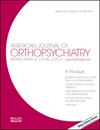对 Hadida-Naus 等人(2023 年)所著《恐怖阴影下的孤独:Hadida-Naus 等人(2023 年)撰写的 "独居老人在持续创伤情况下的策略和内部资源 "一文的更正。
摘要
报告 "恐怖阴影下的孤独:Shirly Hadida-Naus、Gabriela Spector-Mersel 和 Sharon Shiovitz-Ezra 撰写的 "孤独的恐怖阴影:独居老年人在持续创伤情况下的应对策略和内部资源"(《美国骨科精神病学杂志》,2023 年,第 93[3]卷,188-197 页)中的错误。在文章(https://doi.org/10.1037/ort0000667)中,标题更正为 "恐怖阴影下的孤独:由于文章在撰写过程中省略了 "应对 "一词,因此标题更正为 "Alone in the Shadow Terror: Coping Strategies and Internal Resources of Older Adults Living Alone in a Continuous Traumatic Situation"。本文的网络版已作更正。(原文摘要如下,载于 2023-61652-001 号记录)。长期暴露在恐怖威胁下所造成的持续创伤环境(CTS)会损害个人的身心健康。对于在 CTS 中独居的老年人来说,这种风险与老龄化和孤独感共同构成了三重脆弱性。以前的研究没有探讨过这种特殊的脆弱性,也没有专门研究过老年人用来应对这些压力环境的应对策略和内部资源。本研究旨在填补这一空白,探讨独居老年人如何应对这些挑战,以及帮助他们应对挑战的内部资源。本研究对 15 名年龄在 65 岁以上、独居在斯德罗特(一个持续受到恐怖威胁的以色列城市)的老年人进行了深入访谈,并对访谈内容进行了专题分析。参与者描述了各种应对策略。其中一些是心理层面的应对策略:积极思考、有意脱离、将独处视为一种优势以及社会比较;另一些则涉及行为层面:承认现实、应对现实以及 "将现实转化为动力"。参与者还发现了四种有助于他们应对的内部资源:功能独立、信仰、性格特征和以往应对生活压力事件的经验。参加者依靠各种心理和功能资源,积极、创造性地应对了在 CTS 独居的困难。研究结果支持强调老年人抗压能力和应对压力与创伤能力的理论,并提出了加强老年人(尤其是独居老年人)面对 CTS 时的抗压能力的方法。(PsycInfo Database Record (c) 2024 APA, 版权所有)。Reports an error in "Alone in the shadow of terror: Coping strategies and internal resources of older adults living alone in a continuous traumatic situation" by Shirly Hadida-Naus, Gabriela Spector-Mersel and Sharon Shiovitz-Ezra (American Journal of Orthopsychiatry, 2023, Vol 93[3], 188-197). In the article (https://doi.org/10.1037/ort0000667), the title was corrected to "Alone in the Shadow of Terror: Coping Strategies and Internal Resources of Older Adults Living Alone in a Continuous Traumatic Situation" because the word "coping" was omitted during the composition of the article. The online version of this article has been corrected. (The following abstract of the original article appeared in record 2023-61652-001.) Continuous traumatic situations (CTS) caused by prolonged exposure to terrorist threat can harm individuals' mental and physical health. For older adults living alone in CTS, this risk joins the challenges of aging and loneliness, creating a triple vulnerability. No previous research has explored this particular vulnerability and specifically addressed the coping strategies and internal resources used by older adults to manage these stressful circumstances. The present study aimed to fill this lacuna, by exploring how older adults living alone in CTS cope with these challenges and the internal resources that help them do so. In-depth interviews with 15 persons aged 65 + years living alone in Sderot, an Israeli city exposed to a continuous terror threat, were conducted and analyzed thematically. Participants described various coping strategies. Some are deployed at the psychological level: positive thinking, deliberate disengagement, perception of being alone as an advantage, and social comparison; others have behavioral implications: acknowledging reality and dealing with it and "turning it into an engine." Participants also identified four internal resources that helped them cope: functional independence, faith, character traits, and previous experience with stressful life events. Participants coped with the difficulties of living alone in CTS actively and creatively, relying on various psychological and functional resources. The findings support theories that emphasize older adults' resilience and ability to cope with stress and trauma, suggesting ways to strengthen the resilience of older adults facing CTS, particularly those living alone. (PsycInfo Database Record (c) 2024 APA, all rights reserved).

 求助内容:
求助内容: 应助结果提醒方式:
应助结果提醒方式:


